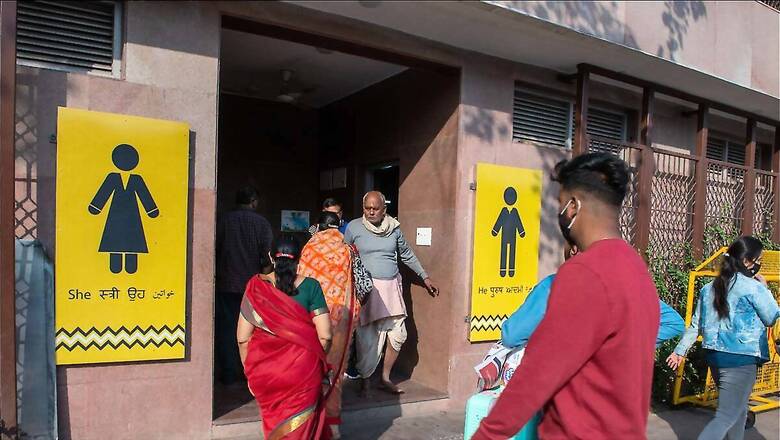
views
India has made significant strides in eradicating open defecation, a practice that has far-reaching implications for water, sanitation, and hygiene (WASH). In 2015, nearly half of India’s population, roughly 568 million people, resorted to defecating in open areas due to a lack of access to toilets. This accounted for 90 percent of South Asia’s open defecation and half of the global total, affecting an estimated 1.2 billion people worldwide.
UNICEF expanded its goal from eradicating open defecation to encompass effective solid and liquid waste management in both urban and rural areas. By 2019, an estimated 450 million people gained access to toilets, marking a remarkable achievement largely driven by the government’s flagship program, the Swachh Bharat Mission (SBM), led by the Prime Minister. UNICEF has been a proud partner of SBM, which is currently in its second phase.
Despite this progress, the challenge remains to ensure consistent toilet usage and hygiene practices. Open defecation has predominantly affected India’s poorest urban and rural residents, posing a heightened risk of diarrheal and waterborne diseases due to insufficient handwashing and water contamination. This practice has led to approximately 100,000 diarrheal deaths among Indian children under five years old.
Furthermore, poor sanitation has broader consequences for national development, impacting workforce health, productivity, education, and the overall well-being of communities. Inadequate water, sanitation, and hygiene (WASH) services in health facilities contribute to a high neonatal mortality rate of 24 deaths per 1000 live births, with sepsis accounting for a significant portion.
In the context of education, reports indicate that 22 percent of schools lacked appropriate toilets for girls, 58 percent of preschools had no toilets, and 56 percent lacked onsite water facilities. Chemical contamination, particularly fluoride and arsenic, affects 1.96 million households, while less than 50 percent of the population enjoys safely managed drinking water. Additionally, two-thirds of India’s districts face extreme water depletion, highlighting the need for improved water safety and security planning.
Resolving the Issue
To address these challenges, UNICEF collaborates with the Government of India on various flagship programs, including Swachh Bharat Mission, Jal Jeevan Mission, and WASH in Schools. This support extends to health care facilities and district-wide WASH initiatives, emphasizing behavior change, state and national guidelines, and cost-effective planning.
UNICEF’s efforts span 16 states and 192 districts, offering technical assistance, alternative service delivery approaches, and partnership mobilization, including the private sector, to enhance WASH services. UNICEF has also expanded its efforts from rural to urban areas, where the urban poor often face sanitation disparities.
Monitoring and evaluation underpin WASH programming, with a focus on community participation, gender integration, and efficiency. Social and behavior change communication (SBCC) and monitoring and evaluation (M&E) frameworks guide interventions. India’s monitoring process encompasses internal monitoring based on the five-year country program, external monitoring for donors and partners, and system monitoring to support government partners in establishing robust monitoring systems.
In the past five years, India has accelerated its efforts to ensure WASH services, particularly for children, as a fundamental right. This involves rigorous monitoring, both internally and externally, as well as system monitoring to strengthen government partners’ capacity in data management and reporting.




















Comments
0 comment